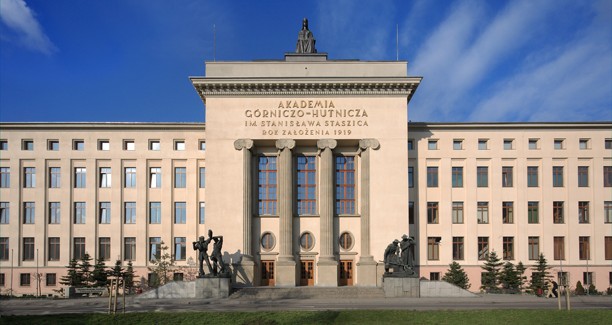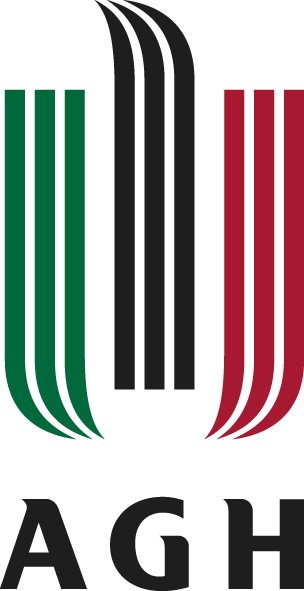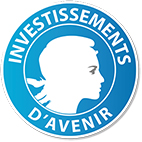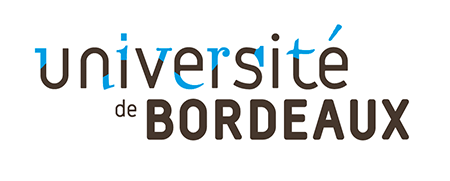Highlights
Julia - To Lisp or not to Lisp
-
 Stefan Karpinski Stefan Karpinski (SPEAKER)
Stefan Karpinski Stefan Karpinski (SPEAKER)
Julia is a general purpose dynamic language, designed to make numerical computing fast and convenient. Many aspects of Julia should be quite familiar since they are "stolen" straight from Lisp: it’s expression-oriented, lexically scoped, has closures, coroutines, and macros that operate on code as data. But Julia departs from the Lisp tradition in other ways. Julia has syntax – lots of it. Macro invocations look different than function calls. Some dynamic behaviors are sacrificed to make programs easier to analyze (for both humans and compilers), especially where it allows simpler, more reliable program optimization. Julia’s most distinctive feature is its emphasis on creating lightweight types and defining their behavior in terms of generic functions. While many Lisps support multiple dispatch as an opt-in feature, in Julia all function are generic by default. Even basic operators like `+` are generic, and primitive types like `Int` and `Float64` are defined in the standard library, and their behavior is specified via multiple dispatch. A combination of aggressive method specialization, inlining and data-flow-based type inference, allow these layers of abstraction and dispatch to be eliminated when it counts – Julia generally has performance comparable to static languages. In the tradition of the great Lisp hackers, this talk will include lots of live coding in the REPL, with all the excitement, and possibility of failure entailed.
-
Lexical Closures and Complexity
-
 Francis Sergeraert Francis Sergeraert Institut Fourier (SPEAKER)
Francis Sergeraert Francis Sergeraert Institut Fourier (SPEAKER)
The power of Common Lisp for Functional_Programming is well known, the key tool being the notion of "lexical closure", allowing the programmer to write programs which, during execution, dynamically generate functional objects of arbitrary complexity. Using this technology, new algorithms in Algebraic Topology have been discovered, implemented in Common Lisp and used, producing homology and homotopy groups so far unreachable. An algorithm is viewed as "tractable" if its theoretical complexity is not worse than polynomial. The study of this complexity for the aforementioned of Algebraic Topology algorithms requires a lucid knowledge of the concrete implementation of these lexical closures. This talk is devoted to a report about a result of polynomial complexity so obtained. The scope of the method is general and in particular no knowledge in Algebraic Topology is expected from the audience.
-
Location
 Dept. of Computer Science, AGH University of Science and Technology http://www.agh.edu.pl/en (CONFERENCE) Kawiory 21 30-055 Kraków Poland
Dept. of Computer Science, AGH University of Science and Technology http://www.agh.edu.pl/en (CONFERENCE) Kawiory 21 30-055 Kraków Poland Hotels
- Hostel Olimp and Hostel Strumyk http://taniehostele.pl/ (HOTEL)
- Hotel Polonez http://www.hotelpolonez.pl/en/ (HOTEL)
- Art Garden Residence http://artgardenresidence.pl/ (HOTEL)
- Hotel Excelsio Boutique http://www.excelsior-krakow.pl/ (HOTEL)
- Fortuna Bis http://www.hotel-fortunabis.pl/ (HOTEL)
- Ibis Budget http://www.ibis.com/pl/hotel-6605-ibis-budget-krakow-bronowice/index.shtml (HOTEL)
- Ibis Kraków Centrum http://www.ibis.com/pl/hotel-3710-ibis-krakow-centrum/index.shtml (HOTEL)
- Novotel Kraków City West http://www.novotel.com/pl/hotel-3407-novotel-krakow-city-west/index.shtml (HOTEL)
Organization
Programme Chair
-
 Irène Durand Irène Durand LaBRI, University of Bordeaux (PROGRAMME-CHAIR) France
Irène Durand Irène Durand LaBRI, University of Bordeaux (PROGRAMME-CHAIR) France
Organizing Chair
-
 Didier Verna Didier Verna https://www.didierverna.info EPITA / LRE (ORGANIZING-CHAIR COMMITTEE SPEAKER) France
Didier Verna Didier Verna https://www.didierverna.info EPITA / LRE (ORGANIZING-CHAIR COMMITTEE SPEAKER) France
Local Chair
-
 Michał Psota Michał Psota Emergent Network Defense (LOCAL-CHAIR) Kraków Poland
Michał Psota Michał Psota Emergent Network Defense (LOCAL-CHAIR) Kraków Poland
Committee
-
 Antonio Leitao Antonio Leitao INESC-ID / Instituto Superior Técnico, Universidade de Lisboa (COMMITTEE) Portugal
Antonio Leitao Antonio Leitao INESC-ID / Instituto Superior Técnico, Universidade de Lisboa (COMMITTEE) Portugal -
 Charlotte Herzeel Charlotte Herzeel IMEC (COMMITTEE) Leuven Belgium
Charlotte Herzeel Charlotte Herzeel IMEC (COMMITTEE) Leuven Belgium -
 Christian Queinnec Christian Queinnec University Pierre et Marie Curie (COMMITTEE) Paris 6 France
Christian Queinnec Christian Queinnec University Pierre et Marie Curie (COMMITTEE) Paris 6 France -
 Christophe Rhodes Christophe Rhodes Goldsmiths, University of London (COMMITTEE) UK
Christophe Rhodes Christophe Rhodes Goldsmiths, University of London (COMMITTEE) UK -
 Didier Verna Didier Verna https://www.didierverna.info EPITA / LRE (ORGANIZING-CHAIR COMMITTEE SPEAKER) France
Didier Verna Didier Verna https://www.didierverna.info EPITA / LRE (ORGANIZING-CHAIR COMMITTEE SPEAKER) France -
 Erick Gallesio Erick Gallesio University of Nice-Sophia Antipolis (COMMITTEE) France
Erick Gallesio Erick Gallesio University of Nice-Sophia Antipolis (COMMITTEE) France -
 François-René Rideau François-René Rideau Google (COMMITTEE SPEAKER) USA
François-René Rideau François-René Rideau Google (COMMITTEE SPEAKER) USA -
 Giuseppe Attardi Giuseppe Attardi University of Pisa (COMMITTEE) Italy
Giuseppe Attardi Giuseppe Attardi University of Pisa (COMMITTEE) Italy -
 Kent Pitman Kent Pitman HyperMeta Inc. (COMMITTEE) USA
Kent Pitman Kent Pitman HyperMeta Inc. (COMMITTEE) USA -
 Leonie Dreschler-Fischer Leonie Dreschler-Fischer University of Hamburg (COMMITTEE SPEAKER) Germany
Leonie Dreschler-Fischer Leonie Dreschler-Fischer University of Hamburg (COMMITTEE SPEAKER) Germany -
 Pascal Constanza Pascal Constanza Intel Corporation (COMMITTEE) Belgium
Pascal Constanza Pascal Constanza Intel Corporation (COMMITTEE) Belgium -
 Robert Strandh Robert Strandh University of Bordeaux (COMMITTEE SPEAKER) France
Robert Strandh Robert Strandh University of Bordeaux (COMMITTEE SPEAKER) France
Programme
Times are local to the conference. You can download the programme in iCalendar format here.May 8th
Welcome reception, pre-registration
May 9th
Registration
Welcome Message
Lexical Closures and Complexity
- Francis Sergeraert
Coffee
Refactoring Dynamic Languages
- Rafael Reia
- António Leitão
Type-Checking of Heterogeneous Sequences in Common Lisp
- Jim Newton
- Akim Demaille
- Didier Verna
A CLOS Protocol for Editor Buffers
- Robert Strandh
Lunch
Using Lisp Macro-Facilities for Transferable Statistical Tests
- Kay Hamacher
A High-Performance Image Processing DSL for Heterogeneous Architectures
- Kai Selgrad
- Alexander Lier
- Jan Dörntlein
- Oliver Reiche
- Marc Stamminger
Coffee
Distributed High Performance Computing in Common Lisp
- Marco Heisig
- Nicolas Neuss
Fast Interactive Functional Computer Vision with Racket
- Benjamin Seppke
- Leonie Dreschler-Fischer
Accessing local variables during debugging
- Michael Raskin
- Nikita Mamardashvili
Lightning Talks
May 10th
Julia - To Lisp or not to Lisp
- Stefan Karpinski
Coffee
A modern implementation of the LOOP macro
- Robert Strandh
Source-to-Source Compilation via Submodules
- Tero Hasu
- Matthew Flatt
Extending Software Transactional Memory in Clojure with Side-Effects and Transaction Control
- Søren Jensen
- Lone Thomsen
Lunch
CANDO: A Compiled Programming Language for Computer-Aided Nanomaterial Design and Optimization Based on Clasp Common Lisp
- Christian Schafmeister
A Case Study in Implementation-Space Exploration
- Alexander Lier
- Linus Franke
- Marc Stamminger
- Kai Selgrad
Coffee
An Inferred System Description Facility
- James Anderson
Building Common Lisp programs using Bazel
- James Knight
- François-René Rideau
- Andrzej Walczak
Lightning Talks
Conference End
Conference Dinner




